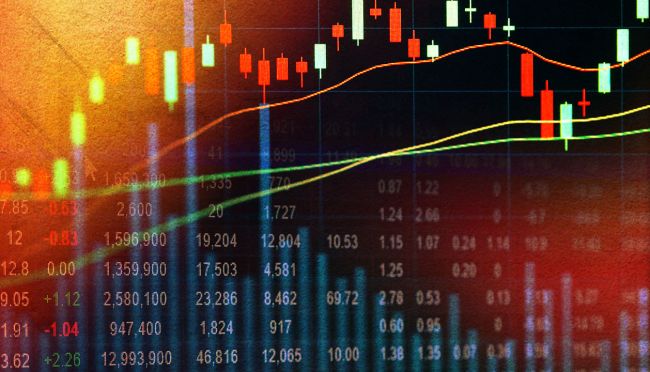Price →
→

- 05 May 2022
- Research & Ideas
Why Companies Raise Their Prices: Because They Can
Markups on household items started climbing years before the COVID-19 pandemic. Companies have realized just how much consumers will pay for the brands they love, says research by Alexander MacKay. Closed for comment; 0 Comments.

- 22 Oct 2020
- Working Paper Summaries
Estimating Causal Effects in the Presence of Partial Interference Using Multivariate Bayesian Structural Time Series Models
A case study of an Italian supermarket introducing a new pricing policy—in which it reduced prices on some brands—offers managers a new approach to reduce uncertainty. The approach is flexible and can be applied to different business problems.

- 02 Jul 2020
- Working Paper Summaries
Inflation with COVID Consumption Baskets
Examining the impact that changes in expenditure patterns are having on the measurement of consumer price indices (CPI) inflation in 17 countries, this study finds that the cost of living for the average consumer is higher than estimated by the official CPI. This implies that real consumption is falling more quickly over time.

- 01 Jun 2020
- Working Paper Summaries
Rebates in the Pharmaceutical Industry: Evidence from Medicines Sold in Retail Pharmacies in the U.S.
Retail pharmacy data illustrates it can be misleading to use list prices instead of net prices to understand pharmaceutical prices. Analysts and economists working in public policy should be extremely cautious in drawing policy conclusions based on list prices alone.

- 05 May 2020
- Research & Ideas
China Tariffs and Coronavirus a Double Hit to American Retailers
American retailers have yet to pass along higher prices caused by Chinese tariffs, but shrinking product demand caused by the coronavirus could change that, warns Alberto Cavallo. Open for comment; 0 Comments.

- 09 Mar 2020
- Research & Ideas
Warring Algorithms Could Be Driving Up Consumer Prices
Companies increasingly use software to conduct rapid price changes. Alexander MacKay explains why firms might benefit but consumers should be worried. Open for comment; 0 Comments.

- 03 Feb 2020
- Working Paper Summaries
Competition in Pricing Algorithms
The adoption of pricing technology can lead to higher prices, by increasing the frequency of price changes and/or encoding pricing strategies in algorithms. This raises new antitrust questions for policymakers, as firms do not need to coordinate or collude to raise prices.

- 11 Sep 2019
- Research & Ideas
Germany May Have the Answer for Reducing Drug Prices
In Germany, drugmakers must prove that a new medication’s benefits merit a higher price than existing drugs. Ariel Dora Stern asks whether "value-based pricing" should become the standard elsewhere. Open for comment; 0 Comments.

- 05 Jun 2019
- Research & Ideas
If Your Customers Don't Care What You Charge, What Should You Charge?
Consumer inertia is the tendency of some customers to buy a product, even when superior options exist. Alexander J. MacKay discusses how that habit affects competitive strategy and even regulatory oversight. Open for comment; 0 Comments.

- 24 Apr 2019
- Research & Ideas
The 'Amazon Effect' Is Changing Online Price Competition—and the Fed Needs to Pay Attention
Amazon's power in the retail sector puts price pressure on what competitors charge, with implications for how federal regulators govern inflation, says Alberto F. Cavallo. Open for comment; 0 Comments.

- 05 Mar 2019
- Working Paper Summaries
The Impacts of Increasing Search Frictions on Online Shopping Behavior: Evidence from a Field Experiment
This paper challenges the logic that making it easier for consumers to search across a wide assortment of products is the best strategy for online retailers. Experiments show that adding extra search costs to find discounted items can improve gross margins and sales by increasing the number of items inspected and serving as a self-selecting price discrimination mechanism among customers.

- 23 Oct 2018
- Working Paper Summaries
Opportunistic Returns and Dynamic Pricing: Empirical Evidence from Online Retailing in Emerging Markets
Dynamic pricing is widely applied in industries like airline ticketing, ride-sharing, and online retailing. This paper identifies two downsides of dynamic pricing: opportunistic returns and strategic choice of payment method. The impact can be significant and has implications for managers and researchers.

- 16 Oct 2018
- Working Paper Summaries
Shipping Fees and Product Assortment in Online Retail
This study highlights a strong link between an online retailer’s product assortment decisions and shipping policies in determining purchase outcomes and profits. Consumers are less sensitive to shipping fees than to product prices, but free shipping for orders above the minimum is a strong motivator for increasing average basket sizes.

- 20 Aug 2018
- Research & Ideas
Bargain Hunters Beware: A Store's 'Original Price' Might Not Be After All
Retailers often compare a "sale" price to the original price. Donald Ngwe says consumers should be skeptical of those original prices — and so should regulators. Open for comment; 0 Comments.

- 13 Jun 2018
- Sharpening Your Skills
That Costs HOW Much?
Beyond the attributes of the product itself, price is probably the leading determinant of success in the marketplace. What does it takes to get the price right? Open for comment; 0 Comments.

- 30 May 2018
- Research & Ideas
Should Retailers Match Their Own Prices Online and in Stores?
For multichannel retailers, pricing strategy can be difficult to execute and confusing to shoppers. Research by Elie Ofek and colleagues offers alternative approaches to getting the price right. Open for comment; 0 Comments.

- 21 May 2018
- HBS Case
How Would You Price One of the World's Great Watches?
For companies with lots of innovation stuffed in their products, getting the price right is a crucial decision. Stefan Thomke discusses how watchmaker A. Lange & Söhne puts a price on its 173-year-old craftsmanship. Open for comment; 0 Comments.

- 07 May 2018
- Research & Ideas
Why Online Retailers Should Hide Their Best Discounts
Online retailers should take a tip from brick-and-mortar shops: Shove your best deals to the back of the store. Research by Thales Teixeira and Donald Ngwe. Open for comment; 0 Comments.

- 15 Mar 2018
- Working Paper Summaries
Targeted Price Controls on Supermarket Products
Governments sometimes consider targeted price controls when popular goods become less affordable. Looking at price controls in Argentina between 2007 and 2015, this study’s findings suggest that new technologies like mobile phones are allowing governments to better enforce targeted price control programs, but the impact of these policies on aggregate inflation is small and short-lived.

Curbing an Unlikely Culprit of Rising Drug Prices: Pharmaceutical Donations
Policymakers of every leaning have vowed to rein in prescription drug costs, with little success. But research by Leemore Dafny shows how closing a loophole on drugmaker donations could eliminate one driver of rising expenses.